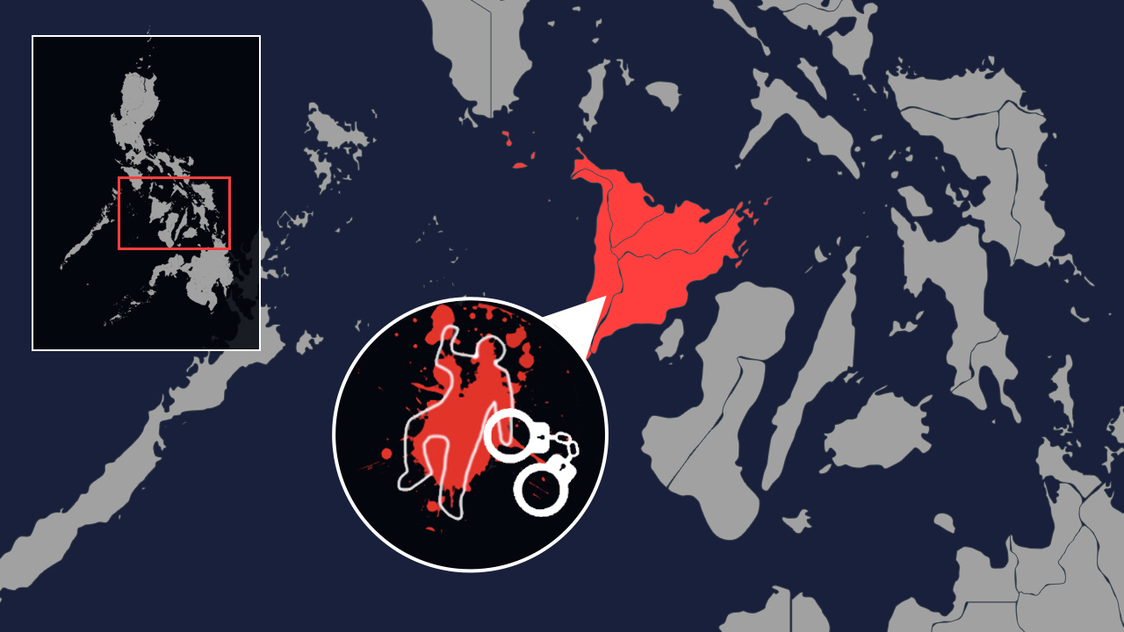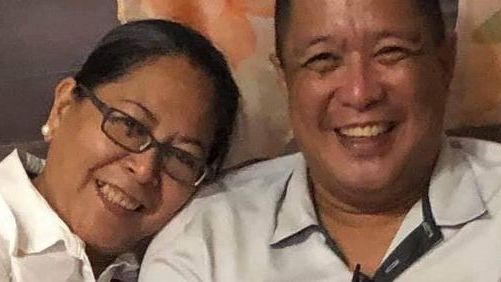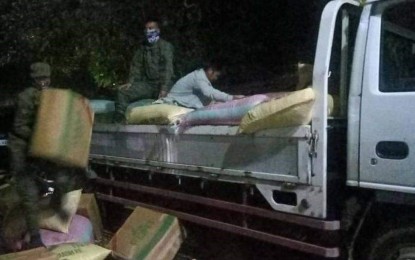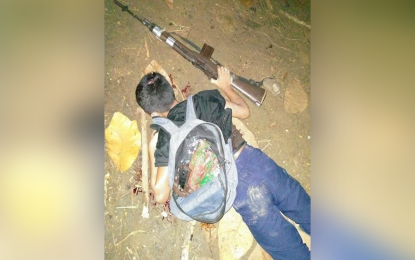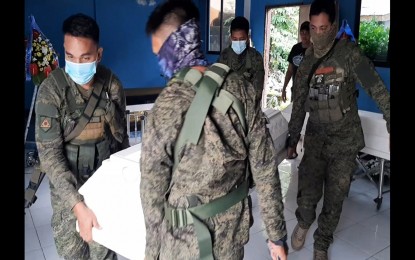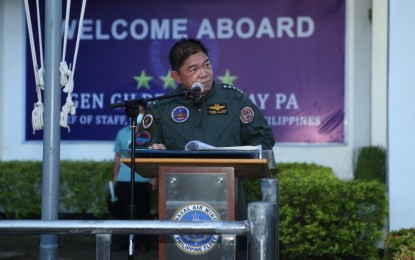Posted to MindaNews (Dec 31, 2020): ANGAY-ANGAY LANG: Pamalandong on eight hours session with MILF Chair Salamat Hashim (By RUDY BUHAY RODIL)
 [A portion of this report was published earlier in Bantaaw at AFRIM Davao City, a month after the visit with this title –To Talk or Not To Talk; The Ups and Downs of the GRP-MILF Peace Talks. Selected portions of the full transcript of this two sessions are here. Part of this series is Part I here. The second part tells what we learned from discussions with the other leaders. In the questions and answer, CSH is Chair Salamat Hashim, IQ is Mohagher Iqbal, Ompong is Rudy Buhay Rodil, Carmen is Dr. Carmen Abubakar, and NQ is Nathan Quimpo.
[A portion of this report was published earlier in Bantaaw at AFRIM Davao City, a month after the visit with this title –To Talk or Not To Talk; The Ups and Downs of the GRP-MILF Peace Talks. Selected portions of the full transcript of this two sessions are here. Part of this series is Part I here. The second part tells what we learned from discussions with the other leaders. In the questions and answer, CSH is Chair Salamat Hashim, IQ is Mohagher Iqbal, Ompong is Rudy Buhay Rodil, Carmen is Dr. Carmen Abubakar, and NQ is Nathan Quimpo.
What vital question today, approximately 21 years after? The historian in me reminds me of who was responsible for the creation of the Sultanate of Maguindanaw. It was Sultan Muhammad Dipatuan Kudarat, That was in 1619. Now it is the head of the MILF who was responsible for the emergence of BARMM or the Bangsamoro Autonomous Region in Muslim Mindanaw, even in his physical absence… because he left this world in 2003…. Because his spirit moves in the hearts of the current leaders. So, for me, today, the day of heroes, December 30, 2020… moving alive among us.]We were three who visited Camp Abubakre, the MILF mother camp in Matanog, Maguindanao, on September 6 and 7, 1999: Dr. Carmen Abubakar of the UP Institute of Islamic Studies, Prof. Nathan Quimpo of the UP Department of Political Science and myself.
It was a trip I will never forget, full of pleasant surprises.
Pleasant Surprises
First, I half expected a touch of cloak and dagger, like meeting at the pickup point and proceeding to our destination under cover of darkness.
But no, we were fetched from our hotel in Cotabato City under the bright mid-morning sun shining upon us in full glory.
I half expected a contact man with password to come for us.
But no, it was no less than Information Chairman Mohagher Iqbal himself who showed up. As guide and passport, he was the epitome of a generous host. On the road he treated us to the famous durian. One each!
His presence in our pickup truck was our pass; no stoppage at MILF checkpoints.
We sought his advice on what questions to ask and what not to ask in our interview with Chairman Hashim. He told us to just fire away and let the Chairman decide what to answer and what not to answer.
I thought I would find a military camp, complete with barracks, gun emplacements, and so on. But I saw a full blown town, with a post office, a solar driven water pump, stores, fully cultivated farms, school, mosque, a marketplace, a carenderia, a rice and corn mill, civilian homes along the road and further away in the interior.
The cream of the cake was the office of the Chairman himself: state of the art desktop and notebook computers, colored printer, colored TV, dubbing machine, and cordless telephone from which one can place a call direct dial to any part of the world — I was tempted to call home from there — and a library full of books, attesting to the intellectual vent of the owner.
Who would think that place was an MILF camp? Yes, there were men both in and out of uniform — and boys — who were loitering about with their firearms, but to me who grew up in Moroland, that was a normal sight.
What was new was that it was called a revolutionary camp.
I was braced for austere accommodations that I thought was part of a revolutionary camp.
There were four of us in the room assigned to us for the night. It was a cold night and the floor is equally cold cement. Nathan and I had one foam mattress each complete with pillow and malong, while our hosts, Information Chairman Iqbal and Al slept on plastic mat – beside me! Inside me, I felt guilty! I know from experience the feelings of sleeping on a foam mattress and a plastic mat. I grew up sleeping on a banig made from grass, tikug in Bisaya, but is common all over the Philippines. What is new is banig made from plastic.
I have slept in Muslim homes in the past, even in the homes of MNLF commanders, and they always offer the best. This one is in an MILF home. I am always touched to the core by the gesture. It reveals the innate goodness of Muslims.
Next door were two bathrooms with flowing spring water. Super cold!
Carmen was housed in another building along with some of the women of the camp. I forgot to ask her about her accommodations.
During the interviews, I had expected to meet revolutionary leaders who were grim and determined, passionate and unwavering in their commitment — and tense or just pretending to be relaxed. They were all that. But this leader is relaxed, candid and easy to talk to, unpretentious. And pleasant. Certainly not tense. The interviews were free flowing.
We had two long sessions with Chairman Hashim, a total of eight hours, another with Murad Ibrahim, Vice Chairman for Military Affairs, and still another with Ghadzali Jaafar, Vice Chairman for Political Affairs, and with Information Chairman Mohagher Iqbal himself.
They struck me as leaders who knew exactly, and believe what they are doing.
I think I learned more from those two days of person to person contact than from years of monitoring events through newspapers, magazines and television and Bangsamoro websites. I have also been able to validate what I have long known from my readings.
Touching and hearing the voice. This is something one will never get in any cites I mentioned. We are an oral people.
Here are extracts from that two long sessions with Chair Salamat Hashim.
Ompong: Kindly tell us how the MNLF began
CSH: Quick historical background. Back in early 60s. Bangsamoro (BM) struggle is rooted in history…Spanish period – Moros never conquered …American times – US did not defeat BM militarily but by policy of attraction [negotiation, Bates, etc.]… Philippine Independence – BM armed rebellions continued, could not accept Filipino rule. MNLF/MILF regards the annexation of the Moro sultanates as a historical error. No evidence of connection with Luzon and Visayas, only quarrel, antagonism, etc. especially after Spanish colonialism. Filipinos collaborated with Spanish colonialism.
NatQ: Origin of one nation concept and the name Bangsamoro?
CSH: Close connection of two sultanates; also sultanates of Sabah-Sulu-Maguindanao. Moro came from Spain, means Muslim. No common identity among “Bangsamoro people” prior to arrival of Spain and Moro. Muslim as name is too big, includes Muslims elsewhere in the world.
Ompong: Your activities in Egypt … and
NatQ: reference to meeting between students in the country and those studying abroad?
CSH: Idea of fighting the Phil Govt came first, no name yet. MNLF came later. Term Moro was used from the very beginning even as early as my time as student in Cairo. 1962, Moro students in Cairo started discussing how to regain the freedom and self-determination of their people. The term bangsa came later. When the Moro National Liberation Front was established, this was the idea of Nur Misuari and other revolutionary groups, what was used as Moro, no bangsa. Even the MILF did not use Bangsamoro Islamic Liberation Front, just Moro. Actually the meaning of Bangsa is nation, not just Filipinos. That was the idea there.
NatQ: But the question of fighting for independence from the Philippines, was this already the topic being discussed among students in Egypt, in the Philippines?
CSH: Yes, yes. The Bangsamoro were free long before the establishment of the Philippine Government by western imperialists. We believe that the official annexation of the Bangsamoro Homeland to the Philippines started only in 1946. The BM cannot accept that. They cannot accept that the BM who have long been independent, long before the establishment of the Philippine Government, should be under the Philippine government. Neither can they accept the name Filipino which is derived from Felipe II, the king of Spain who tried repeatedly to invade the BM homeland.
There is a very funny story in Cairo. Because they cannot accept that they are Filipinos, the Moro students in Cairo stopped getting or renewing their Philippine passports. When the Egyptian authorities found out that the Filipino students were not carrying passports, in fact the passports of some of them expired for several years already, they did not want to renew it anymore. I was the President of the Philippine Students Association in Cairo at that time. I was called by the Egyptian intelligence: Why are you not renewing your passports? I needed another explanation, I did not tell him the real reason.
I told him that we are poor people, most of these students are from poor families — which is not true because many of these students are from the Alontos, they are not poor people, Abubakar — but I told them that we are poor people, we cannot afford to renew our passport. The Philippine government is kafir government, we are Muslims, we are discriminated against, they are making the passport fee very expensive. So, we stopped renewing our passports.
The intelligence was not satisfied. I was brought to the top intelligence officer who was a general. Again, the same discussion. The general decided, don’t worry. Here in Cairo, you have no problem. We will issue identification cards but you cannot use this for travel to another country. If you stay here in Cairo, even for ten years, twenty years, you can only use this identification card; you don’t have to renew your passport, if that is true that you cannot afford to renew your passport.
When the Philippine embassy in Cairo found out about this, the matter was relayed to the Department Foreign Affairs. the Philippine embassy decided to issue Philippine passports to the students, free of charge. Then, we accepted. I told the students, never mind. We are not Filipinos, never mind because you see we also accepted the Egyptian identification card, we are not also Egyptians.
Carmen: How many students were there?
CSH: At that time, about 200, mostly from Cotabato, Lanao and Sulu, very few from Basilan, no one from Tawi-Tawi, no one from Davao.
NatQ: How was the connection between the students in Egypt and students from the Middle East and African countries?
CSH: We managed to convince them, especially at that time when we were offered free passports, the students from Saudi Arabia, Kuwait and all other countries also demanded that they will be issued free passports.
NatQ: How did this develop into a movement for self-determination?
SH: During our student days in Cairo, we used to go to Saudi Arabia to perform Hajj. Most of the students are gathered there. Usually Hajj time is the vacation of the students and we take advantage of that. It was also a time for us to see each other. Me met in Arafat, we met in Mina, we met in Makkah.
NatQ: Were there also students from here?
CSH: Yes, yes.
Ompong: Were you by any chance influenced by the mood in Egypt at that time; it was the time of Nasser; he was also an activist?
CSH: We cannot also deny that Egypt at that time was the center of revolutionary movements. As a matter of fact, the dormitory where we were staying, there were more than 100 nationalities from all over the world. Most of them were from oppressed countries, and most of them are also thinking of revolution, especially that they were there in that revolutionary country, because Egypt was considered a revolutionary country at that time.
Ompong: Was there any particular Islamic, ah, at that time, I think, they were not using the word fundamentalism yet, it was the media, ah…?
CSH: Yes, they was no such thing as fundamentalist at that time, but there were already movements. Islamic movements. Islamic Movements actually started about 70 years ago. I think you know about the Al-Ikhwanu Muslimun. It started in Egypt, founded by Hassan al-Banna in 1928. This was the first Islamic movement in this century. It was active at that time, they were against the government. They appreciate the revolutionary ideas of Abdel Nasser but they did not agree with his ways of governing the country. Some members were professors in the university; some of them were also working with the government.
NatQ: Would you say that such influence continues up to now, say, even in the MILF, the ideas that were then in Egypt in 1928?
CSH: Yes, basically the idea is still there but of course there have been some changes.
NatQ: How about this Mindanao Independence Movement in the 1960s? How did the students there in the Middle East regard this MIM?
CSH: It was declared by Datu Udtog Matalam. It was first a Muslim Independence Movement. It was modified later to Mindanao Independence Movement.
Ompong: What was the reason for the modification?
CSH: I think the reason was not very clear, it was not well planned, it was because of the sentiments of that old man against the government …. There was no revolutionary plan for that, just on paper.
Ompong: Were you back here already?
CSH: I was still in Cairo but I know that because we have the same place as Datu Udtog Matalam, from Pagalungan.
Ompong: But I was told that there was a student sector in the MIM?
CSH: Yes, yes. Actually when Datu Udtog made the declaration, he sent me a copy and asked me to help in the dissemination of that document. And I did it.
Ompong: Is there any connection between the MIM and the training of the Top 90?
CSH: Yes, there is a connection. because the struggle was only one.
Ompong: Did you have a hand in the training?
CSH: Yes, of course. We were the ones who arranged it when we were outside the country. At that time we already had some connection with some countries. We started looking for countries which could possibly support. And we found some.
NatQ: Libya?
CSH: Until now, it remains a secret of the struggle.
NatQ: So, how did the MNLF come about? How did the students from here get to meet and discuss about it?
CSH: You see, I think you know that there are many politicians who wanted to make use of everything to strengthen their political power. When those politicians found out that there were groups of students there in Cairo who have that idea of rising up against the Philippine government, they also found out that there were students here in the Philippines, especially in UP headed by Misuari. They wanted to utilize these groups, those outside the country and those inside the country, and through them it was a blessing that — although we know that they are not sincere in what they were doing but at least through them, we happen to get in touch with each other.
NatQ: Is it alright to mention their names?
CSH: Well, I think it is not wise for us to mention their names. But you can guess who they are. Very easy to guess, but it is not really necessary to mention their names.
Carmen: Do they still have influence in the movement?
CSH: No, they did not have any influence because we know them, from the very beginning we know them. But you see, this is what happened. They wanted to utilize the students. On our part also we wanted to utilize them. Because we know that we have no influence at that time, we are still students, we have no material capability, we wanted to utilize their material capabilities and their influence. Well, you know now, I think we were the ones who succeeded in utilizing them. They did not succeed in utilizing us.
Ompong: When exactly was the MNLF organized? As MNLF this time?
CSH: The MNLF was organized in 1968 and 69. That was the time when there was the batch 90 of trainees, including Misuari, they started the root of the organization from that time – during their training, and they were the ones who became the first cadres of the struggle. But the actual organization of the MNLF was in 1970.
Ompong: But the name?
CSH: At that time, the trainees were back in our homeland and also, on our part, some of us in the Middle East also returned. I was already here in the country at that time and we met here with Brother Misuari and other cadre officers.
IQ: Questions about women?
CSH: BM women can do many things that men can do. We have learned from the Algerian revolution against the French that they used their women to do many secret operations that cannot be done by men, like transporting firearms and ammunition, even planting mines in baskets of vegetables carried by old women, engaging in trade in town centers.
Carmen: If that is your perception that women are capable of undertaking difficult and dangerous missions, you are saying that women are a force in society, not to be kept in the house to do household work?
CSH: We do not agree that women should be kept in the house. We believe that they can do many things that cannot be done by men. We believe that in many business transactions, women are better than men. We believe with British that women are the best secretaries, that women are more trusted than men.
Carmen: So, you are not in accord with the Taliban policy of keeping women in the house, not allowing them to go to school, not allowing them to perform medical practices, or legal practices?
CSH: That is the tradition in Afghanistan. That is not necessarily Islamic teaching. It may be good for the Afghan people, but it is not necessarily good for the Bangsamoro people; we cannot follow that. This is not our tradition to keep our women in the house.
Carmen: But I think this kind of women’s function is restricted in the political sphere…
CSH: Not necessarily. Here in my office some of my staff are ladies. We have women in the central committee. In all our offices we have women. Some of our representatives abroad are women, some roving ambassadors are women.
Carmen: Why is this not discussed openly, that the women participate very actively in the movement?
CSH: We do not discuss it openly because it is our secret. We do not like to government to know the role of our women.
Carmen: In your vision of an Islamic state, would you consider women as a member of the cabinet?
CSH: Yes, why not. Of course there are prophetic traditions which do not allow women to become head of state but in actual practice I think there are very few non-Muslims who are head of state. In Turkey the prime minister was once a woman; now, the prime minister in Bangladesh is a woman, also in Pakistan.
Carmen: Hindi ba labag yan sa doktrina, Mr. Chairman?
CSH: You see, we have the Qur’an. The Qur’an says something. What is important is that what the Qur’an says must not be changed. Either you follow it or not. There is an indication in the Qur’an that women cannot be head of state.
Carmen: What about Pakistan, nilabag ba nila ang verse na yon?
CSH: Yes, I think what is not allowed is to change what the Qur’an says. Either you follow it or not. If you do not want to follow it, that is between you and Allah. But you see, at present, the majority of Muslims in the world are not practicing Muslims. But the number of practicing Muslims is increasing gradually. Usually practicing Muslims are not involved in politics; it is the non-practicing Muslims who are into politics. That is why the ideas of the practicing Muslims do not prevail, because the authorities are against them. But anyway this is not a problem. In our case here, if we find a woman who is better than everybody, why not allow her to become president.
Carmen: You will not object?
CSH: No. Even here in the MILF, if there is a woman that can prove herself better than Hadji Murad, better than Ghadzali, better than myself, why not allow them to take over.
NatQ: Last night we were talking about Islamic state, what exactly is your vision of an Islamic State. Is there any particular model of an Islamic State your sort of look up to?
CSH: Actually, at this time, we are not very much interested in an Islamic state. We are more interested in liberating our people. We are more interested in regaining our freedom and self-determination. Islamic state will be discussed later.
Our concern now is not the Islamic State. Our concern is the liberation of our people. Our concern is to regain the usurped freedom and self-determination of the Bangsamoro people. This is our concern.
And then, regarding Islamic state, whatever state, that will be decided by the people. Because we believe that the people will be the ones to decide. We have to ask them through free election, through free plebiscite or referendum what they want.
If they want a Communist state, why not? If they want a secular state, why not? But if they want an Islamic state, why not?
Because you see, we believe that we cannot go against the will of the people. The will of the people must prevail. Because if we go against the will of the people, then there will be lots of problems.
NatQ: The reason I was asking this question is because, even, say, areas which are predominantly Muslim and say, these areas would want to be part of an eventual state, there would also be non-Muslims who might be living there, even if they are the minority, of course, we will also like to know exactly how they would fare. How will they be able to practice their own ways?
CSH: The policy of Islam towards non-Muslim in an Islamic state is very elastic. Non-Muslims will be given many options. If they want autonomy, they can be given real autonomy.
Unlike the autonomy given by the Philippine government to us. We believe that this autonomy is nothing. Like, for example, the autonomous region in Muslim Mindanao, the municipal mayor is more powerful than the governor of the autonomous region. The mayor can command the police in the municipality, while the governor of the autonomous region cannot even command the police. The police is under the command in Manila.
On the question of autonomy, if they want federalism, that is their choice. If they want autonomy within the Islamic state where the Shariah will be implemented, they will also have the choice. If they do not want, then they can have their own laws.
Ompong: Mr. Chairman, when you say liberation of your people, I assume that you are talking about certain territories, specific territories?
CSH: When I say liberation of our people, I mean independence. As for the territory to be covered by the independent state, that is negotiable. We are practical, although we know and we are claiming that the entire island of Mindanao, Basilan, Sulu, Tawi-Tawi, and even Palawan were part of the Islamic Sultanates, Sultanate of Sulu and Sultanate of Maguindanao, but we know that it is very, very clear that there are many areas in Mindanao where the non-Muslims are now the majority, the settlers from Luzon and Visayas are now the majority.
We are no longer claiming these areas. These are the subject of negotiations. If we happen to gain independence, these will be subject to negotiations, and only the areas where the Moros are still the minority.
As for our brothers, the indigenous natives in the area, they call them highlanders, if they want to join us, as a matter of fact we even consider them Moros — when we talk about Moros, we do not mean all the Moros are Muslims; we believe that all the native inhabitants, now, our definition of Moro includes all the native inhabitants of Mindanao. This includes all the indigenous tribes, the highlanders.
NatQ: In the eighties, when the MILF which was not yet MILF, but you were in favor, still working out this autonomy, the framework was still autonomy, and then now, your position is for independence, what accounts for the change and when was the change in position made?
CSH: You see, this is politics… The purpose of trying to be moderate at that time … to make the Philippine government feel that we are not so aggressive, that we were moderate. If the war involves politics, and not only politics but tricks, yes, revolutionary struggle is a political struggle and involves many tricks.
NatQ: But what pushed you to take a harder position now, this independence. Before it was autonomy, now…
CSH: Well, because we believe that it is better to start from the weaker one, then move to the stronger one. This is our way.
Ompong: I understand, Mr. Chairman that up to 1988, then in 1992, you were still talking about the full implementation of the Tripoli Agreement.
CSH: No, not until 1992. In 1989, I was already here in the camp. After my return, that was the time when we stopped talking about autonomy. In the 70s and the 80s, that was the time when we were talking about autonomy. After my arrival here, I think that was December 1987, after that we stopped talking about autonomy.
NatQ: What about an idea of a state within a federal setup? A state of your own but within a bigger federal state. Are you open to such a…?
CSH: Within a bigger state, that is still within the Philippines.
NatQ: You would not be open to that?
CSH: We are not open to that now. But if that will happen would like to federalize the system, we will see, we will see the implementation. But we will not immediately accept it. This is our policy. For example, when the GRP was negotiating with the MNLF, our policy was wait and see. We did not oppose, we did not say anything, we just kept silent. The same thing, if the Philippine government will decide to federalize the system here, we will wait and see.
NatQ: Some 15 years ago, I came across your book, it was given to me by GJ at that time, and I notice there that there was hardly any mention of western imperialism, but last night you were talking about western imperialism. Did you refer to the US as western imperialism? How do you define imperialism?
CSH: When we talk about imperialism, we mean western countries that occupied all the weak countries in the world. And American was not one of these, Britain, Italy, and France. Occupation of weak countries, especially Islamic countries started after the first world war.
NatQ: Do you see Islamic countries now as facing a threat from the western powers, or do you think a more harmonious relationship can evolve?
CSH: Colonizers imposed their own system of government, education in Islamic countries. The first leaders of liberation movements in Indonesia, Malaysia and Pakistan, were products of this colonial system. Because of this, when they took power, Islam was put aside.
NatQ: Do you now see some sort of Islamic revival or resurgence all over the world?
CSH: There is now Islamic resurgence all over the world because the Muslim people of the world realize that countries following the secular system which was introduced by the western colonizing countries, never developed. It may have been good for the western countries but not for the Islamic countries. There is now the idea that Muslims must go back to their Islamic way of life, Islamic system of government. Muslim scholars all over the world are calling for the revival of Islam. Even Saudi Arabia is not considered an Islamic state. [Carmen: About Iran?] Iran is Shia, maybe it can be considered an Islamic state but Shia is minority in the Muslim world, only about 10% of the entire Muslim world. The Sunna constitute the greater number.
NatQ: Last night we were discussing about the article of Huntington which is predicting the possible clash of civilizations, western versus Islamic, do you agree or subscribe to such a theory?
CSH: Well, not necessarily a clash of civilizations but what is sure is that Muslim Ummah all over the world has now realized that as Muslims they have to remain Muslims, and they have to regain their power, and they have to regain their civilization. Throughout the 81 years experience from 1918 to now, the Muslims realized that although they still believe that western civilization is good but it is good for the westerners, not for them. They have to revive their own.
Carmen: Pero hindi ba there are certain common universal principles between the west and Islamic society? That can bridge the gap between the two?
CSH: They are trying to do that. One of the proponents of this idea is Prince Charles of Britain.
Ompong: But is it not true that during the golden years of Islam, it was actually Islamic influence that entered into Europe and became the civilizing factor…
CSH: That’s right.
Ompong: … and then it was the turn of Europe to come over to us, it was their turn to civilize. It seems to me that there must be something common between Islam and development somewhere.
CSH: Yes, that is right. In fact Muslims are not opposed to western civilization, especially this present advancement of technology, in knowledge, but Islam is only against the values and morals of the western countries. Muslim scholars are of the opinion that western civilization is Islamic civilization; they got this civilization from Islam. And so therefore why not accept it? But only the manner of implementation.
Ompong: It seems to me that the battle actually is in the sphere of values rather than in technology?
CSH: Yes, yes. No question about it. Islam even emphasizes that Muslims must seek knowledge wherever it is in the world. Even the prophet Muhammad said to his companions that you seek knowledge even if it is in China. Because during his time, China was considered the farthest center of civilization.
Ompong: To be more particular, how do you seek to implement these thoughts, I mean these are very beautiful thoughts, within the Bangsamoro state?
CSH: As I have said, what is important to us is to gain independence and after gaining independence, after that we will try to spread the correct teachings of Islam but we will not impose it on our people, we will submit to the will of the people.
But we will do what we can to let them understand what is Islamic is.
https://www.mindanews.com/mindaviews/2020/12/angay-angay-lang-pamalandong-on-eight-hours-session-with-milf-chair-salamat-hashim/
